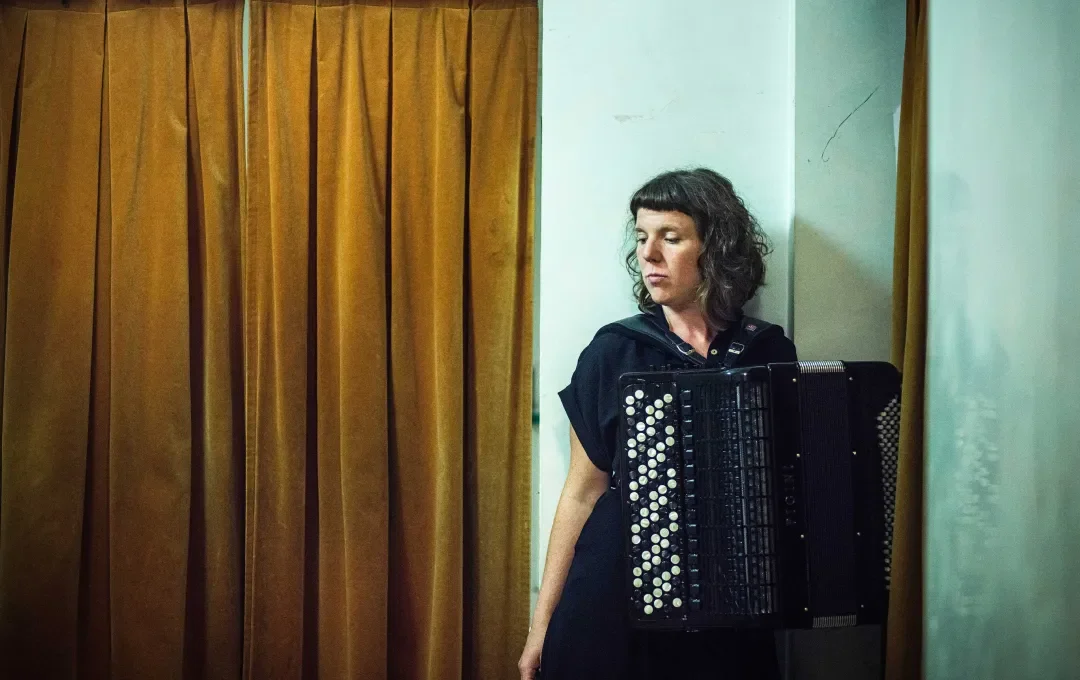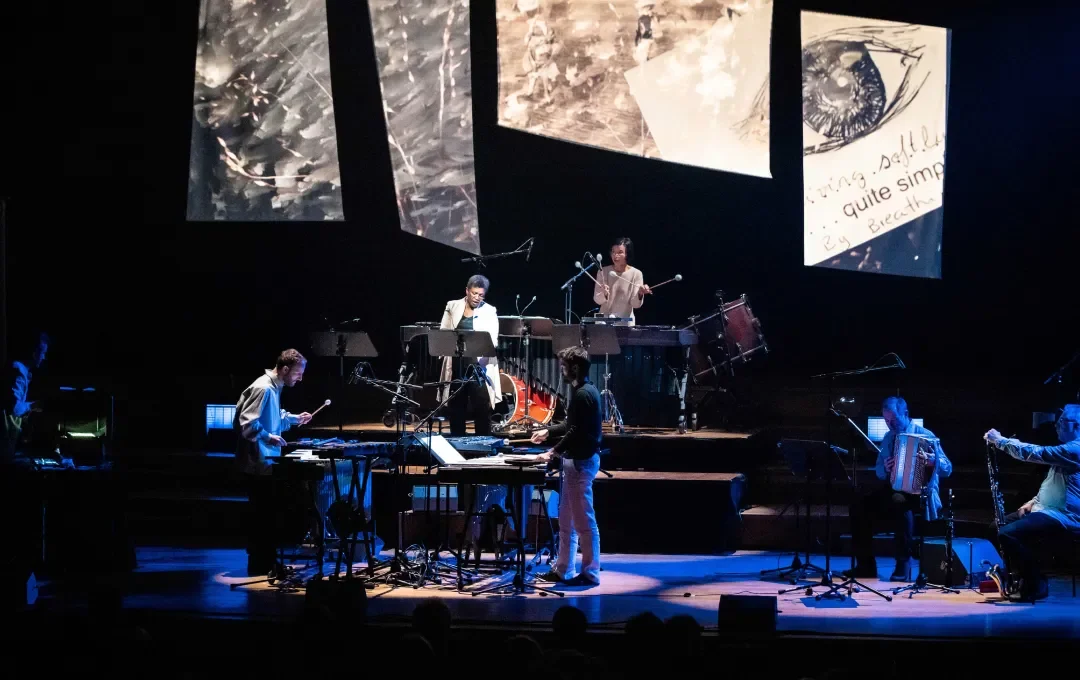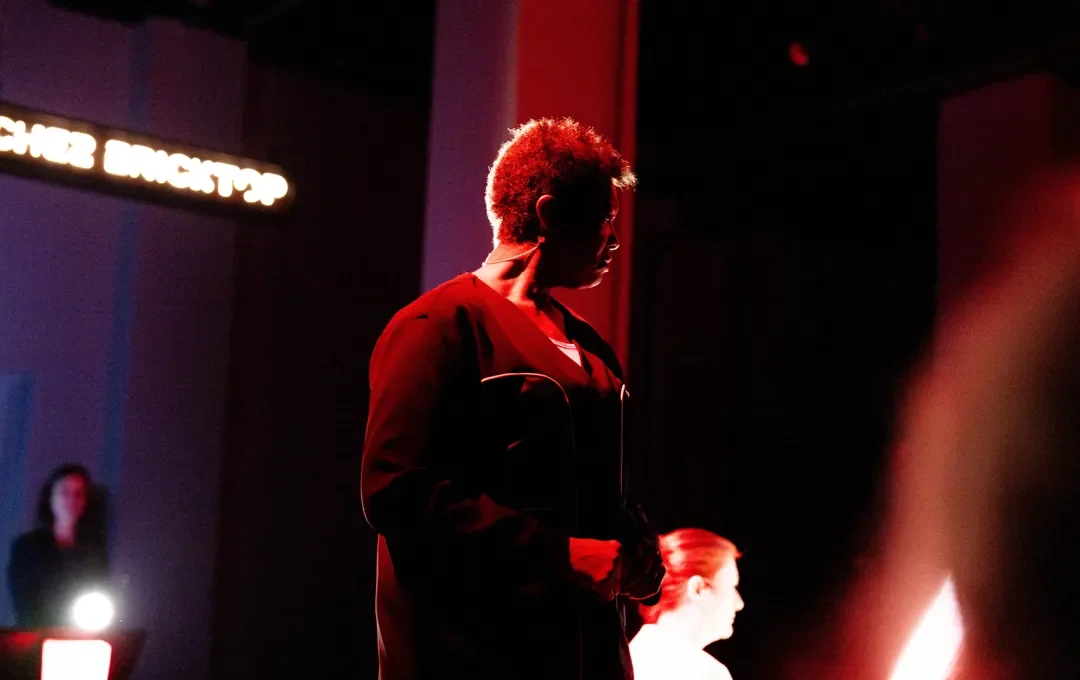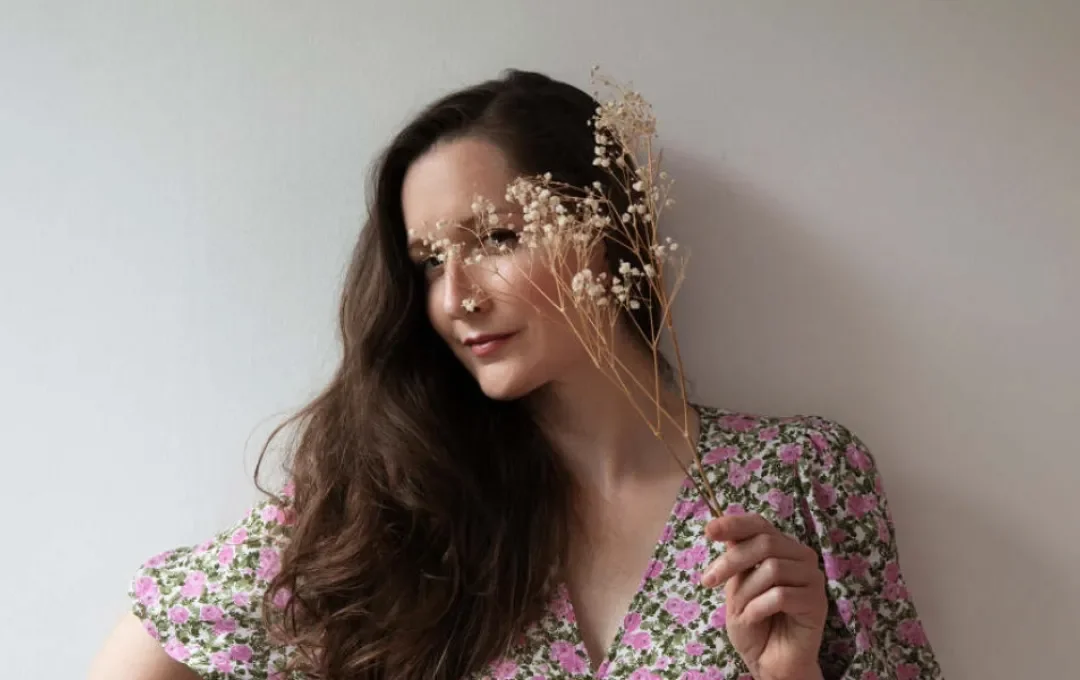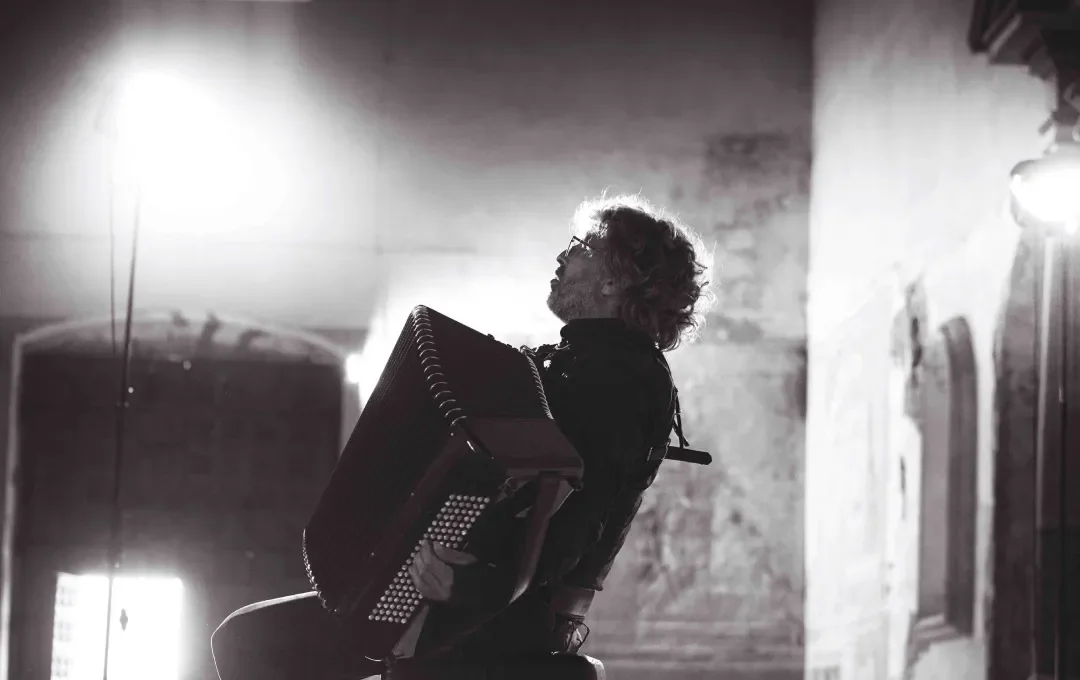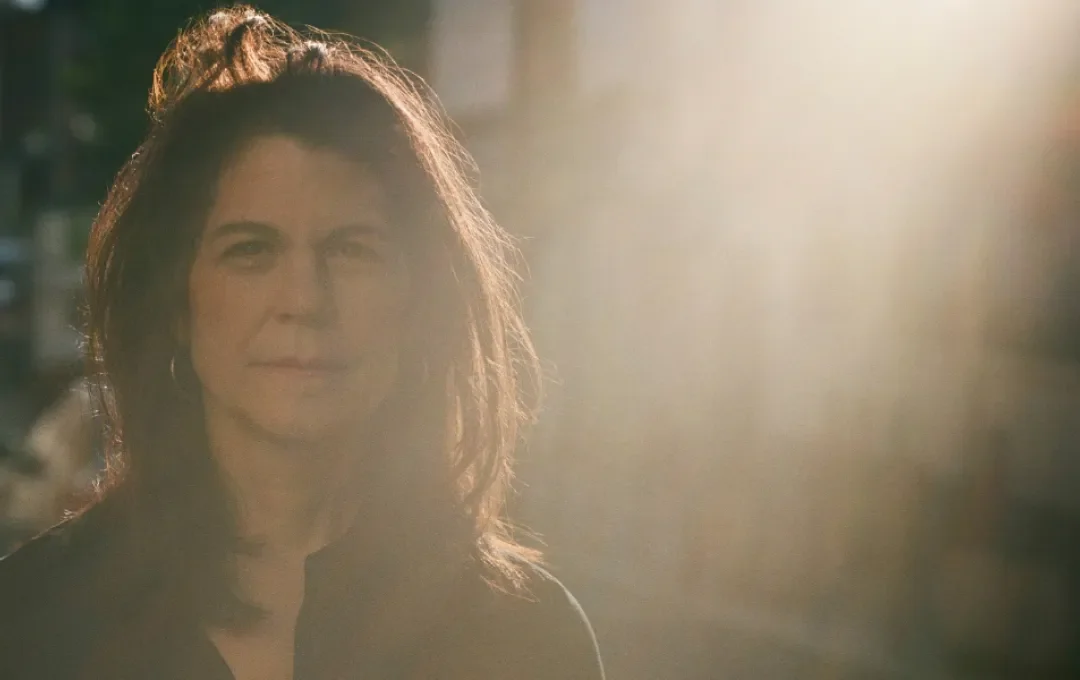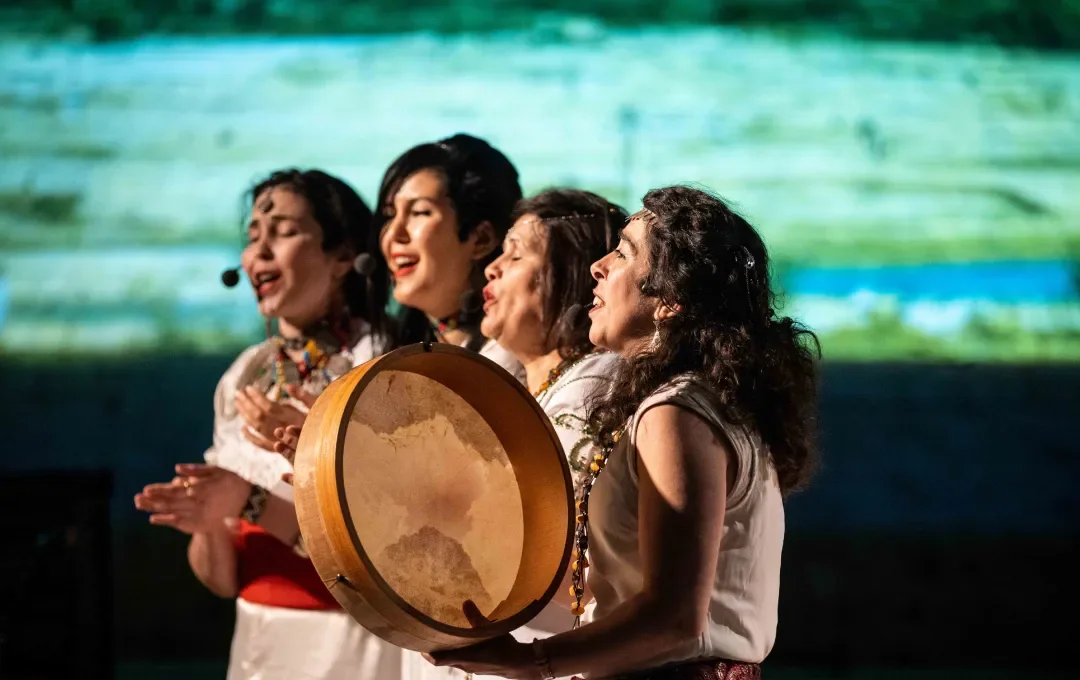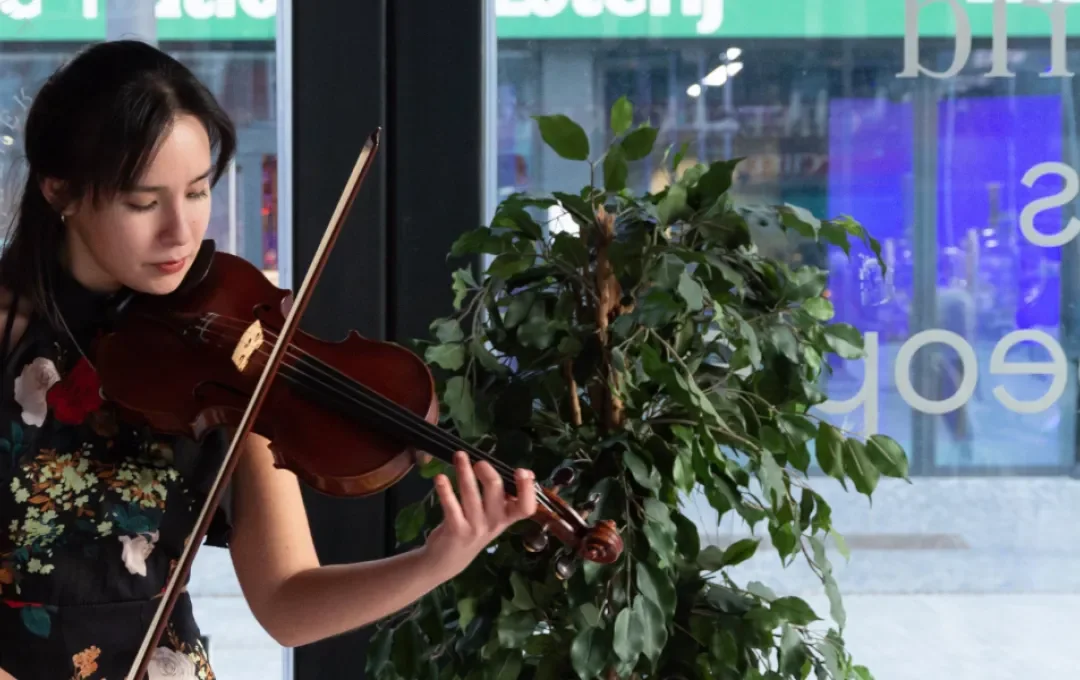
music among friends
in conversation with equilibrium-members emma posman and rolf verbeek
On 16 March, festival artist Barbara Hannigan will be surrounding herself on the stage at Flagey with members of her Equilibrium Young Artists programme. Together they colour the evening with French impressionist strokes. Dramaturge Lalina Goddard spoke to Equilibrium members Emma Posman (soprano) and Rolf Verbeek (conductor).
What are you working on at the moment?
Emma: I’m currently rehearsing at La Monnaie for the new opera Solar, an opera that connects two Greek myths to a contemporary issue. The opera is written by Howard Moody and directed by Benoit de Leersnyder. I sing the role of Talus, who is thrown from a rock by his jealous uncle and then transformed into a bird. I think it’s an absolutely lovely role.
Rolf: I’m preparing a project with music by Poulenc as conductor of the Camerata RCO, an ensemble formed of members of the Concertgebouw orchestra. In the coming weeks I am on tour with Barbara and the London Symphony Orchestra. As you know, we’ll be visiting Brussels soon, for the opening evening of Klarafestival!
So you have a busy diary. And then you’re also our guests at Klarafestival on 16 March, together with Barbara Hannigan and other members of her Equilibrium Young Artists programme. She explicitly describes the selection process as not an audition. How was that experience for you?
Emma: We didn’t know what to expect in advance. 25 of us candidates were ushered in at the same time and we all had to play games with one another. I think they were carefully watching how you reacted, how you interacted with one another. The singing audition was also done very differently to normal, because we all sang in front of one another. Afterwards the other participants were asked for feedback. Initially I was rather shocked by this, but actually it was a really positive experience. You learn a huge amount from it, and everyone was very kind to one another. To prepare for the audition day, we were told to follow sport coach Jacky Reardon’s ‘Discover program’ on the website Friendly Eyes. In it she makes the comparison between classical music and sport. Perhaps we don’t think about it that often, but actually giving a concert is extremely similar to playing a tennis match: we also have moments of ‘peak performance’ on stage when you have to give the best of yourself. At that moment your head must be empty so that you can concentrate fully on your performance.
How do you do that?
Emma: laughs. There are various ways in which you can do that. By looking kindly at yourself, by switching off that inner, self-critical voice while you’re singing. Basically it’s about finding the right balance; on the one hand you want to strive to get the best out of your performance. If you’re not trained in that, you always think: “oh no, that just went wrong”, while you’re in the middle of a performance. So it’s about a kind of friendliness towards yourself and others.
How does that work for you as a conductor, Rolf?
Rolf: It’s actually exactly as Emma describes. It’s only when you look at yourself with those friendly eyes that you can fully develop yourself. Then you can take that extra step during a concert with everyone there, that X-factor. And of course, that step is inside someone’s head. As a conductor, it is equally the case that if you make a mistake, you can get stuck with it. Although it’s perhaps less obvious than with a singer, as I don’t produce any sound, and yet you must never forget that you are constantly producing output.
And how was your ‘audition? Were you standing there conducting along with 25 other candidates?
Rolf: laughs. No, fortunately not. When I researched Equilibrium Young Artists, I only found auditions for singers, so I sent Barbara a message asking her if I could also take part as a conductor. She then invited me to attend a rehearsal of The Rake’s Progress in Amsterdam. Some time later, I got another message from her saying that her assistant had cancelled and asking whether I knew the work well. I then studied the music like crazy and since then I have gone with her more and more often as assistant conductor.
When you look back at this journey, what has Barbara Hannigan given you?
Rolf: Barbara is someone that can make music from every squeak and crack. I think that in the way I have worked with her, I have learned to seek out the depth of the music, at every level: not only the story, the feeling, but also in terms of atmosphere. She’s a real magician at that.
Emma: For me it was also the depth that she sought out in her interpretation. She studied the music right down to the finest detail. But also the way in which she leads her life. We are in a profession where we are constantly travelling, but amid the hectic pace she seems to have found a kind of tranquillity. She exudes calm and spontaneity both on and off stage, and at the same time maintains an incredible focus. For my first concert with her I was so nervous, but once I was on stage with her, the stress fell from my shoulders. I was then able to feel completely at home, there on that stage. I think she has that effect on a great many people.
Rolf: I think that her strength indeed lies in the honesty with which she stands on a stage. Before you had those authoritarian conductors who would brook no contradiction. She is the diametric opposite of that. She makes music with everyone. She is a connector, and as a result you feel extremely safe, as Emma says. I certainly take this honesty with me in my own practice as a conductor. In fact it is above all the case that you have to conduct as you are. The fact that you are authentic, that you dare to be yourself. And you trust that in so doing you’ll also take others with you. Everyone sitting in front of you is of equal value. That may sound self-evident, but an orchestra is still often seen as an instrument, controlled by the conductor.
At Klarafestival each of you will be performing part of the impressionist programme Music among Friends. What frees up the music of Stravinsky and Delage in you?
Emma: I love the short, atmospheric and light-hearted poems that Stravinsky set to music in his Trois poésies de la lyrique japonaise and his Deux poésies de Konstantin Balmont. For example, I sing a song about how a dove charms a flower, flies away, and how the sad flower is left behind alone. As a singer I mostly sing with a piano or orchestra, so it is special for me to perform chamber music for a change. In these songs, Stravinsky creates a highly imaginative, unique sound world.
Rolf: Maurice Delage wrote his Quatre poèmes hindous after visiting India in 1912, so the music is punctuated with Indian influences. The stories are also very beautiful. The second movement, for example, is about a pine tree in the Far North. He falls asleep under a blanket of snow and dreams of a palm tree at the coast. I find that such a lovely idea. The music is very painterly and richly coloured. I am also absolutely delighted that I will be conducting Barbara
Are you excited about that?
Rolf: Excited, yes, but in a good way. At that moment you have all your antennae on high alert. You are sharing the stage with such talented musicians and you just want to do your job well. So above all, I’m really looking forward to it!
What else is on the horizon for you?
Rolf: After the summer I’m making my debut with both the Rotterdams Philharmonisch Orkest and the Nederlands Philharmonisch Orkest. I’m really looking forward to that.
Emma: After Solar I’ll be singing the role of Lauretta in Gianni Schicchi for the first time!
Rolf: That’s fantastic, Emma!
You both have some great plans, I can see. Good luck, and see you at Klarafestival!
